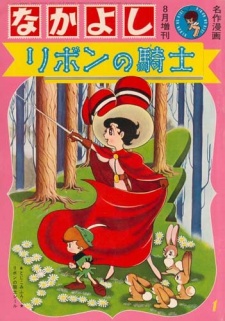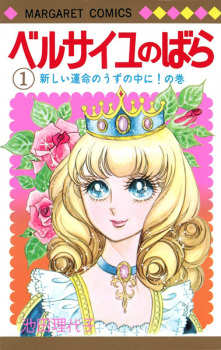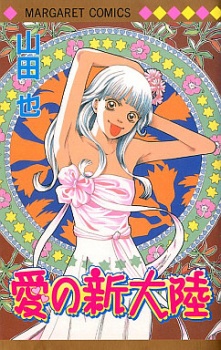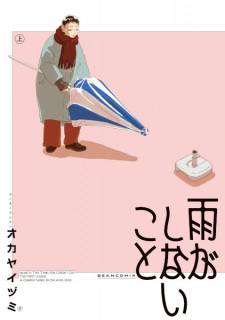Apr 5, 2021
There’s this common belief that Princess Knight is the first shoujo manga ever. While this is not necessarily true, what is true is that Princess Knight is the first shoujo manga serialization. The first long-story of the genre.
It’s the Astro Boy of Shoujo, and that makes sense, because it’s mangaka is very much Astro Boy’s own Osamu Tezuka.
Written in 1953, Princess Knight is nonetheless a very important landmark in the history of manga as a whole. But I’m not here to review the 1953’s version of Princess Knight. Mostly because I didn’t read it, as a matter of fact, I doubt most people who have
...
it in their lists did either.
It’s more likely that they read the 1963’s remake. Completely re-written and re-drawn by Tezuka himself, this is the version that’s widely available for us, and has been translated in multiple languages.
Since I never read the original, I can’t really tell you a comprehensive list of differences, but improved art and panelling are the most obvious, an extension from 3 to 5 volumes (while keeping the chapter count at 27) and a change of villains, from Mephisto to Madame Hell, and, perhaps the biggest being the introduction of Captain Blood. It’s hard to say if these changes are for better or for worse, so I’ll be talking about the manga as is from here on out.
The story of Princess Knight is about a princess (I bet you didn’t see that one coming) who, due to a mistake, is born with both male and female hearts.
At first I thought this would make Sapphire, our main character, a hermaphrodite, but not really, specially because genitals seem to be inexistent in this word. Instead, this means that fate forced her to hold two personas. Being born as a girl, for half a day she gets to wear dresses, learn feminine etiquette, enjoy fashion, dancing… etc.. etc..
But, to make sure the evil Duke Duralumon doesn’t take the throne, she has to pretend to be a prince, which she does in the other half of her day. Learning how to swordfight and other manly, manly things.
Due to this plot, it’s natural that a big portion of this manga revolves around gender roles.
How it handles it is something that I think might be subjective…
It’s clear that, to a certain degree, the forced gender roles are taken as a bad thing, or as a joke. They put a baseball bat and a cap on the bed to make it look like the baby is male, which is still my favourite joke in the entire manga.
There’s multiple characters that think that the Princess should be able to rule as a woman, and not have to hide her gender. And the women in general have a strong presence in the later part of the manga, in a very fun battle of sexes.
But Princess Sapphire has two clear sides to her coin. Without her female heart, she’s brash, rude, strong. Without her male heart, she’s cute, weak and frail. Which is fine, but it also goes against other portraits of female characters within the same story. Makes it a bit… inconsistent.
With that said, the major villain of this manga, Madame Hell, is trying to steal Sapphire’s female heart so she can give her to her daughter, who she believes is not girly at all. So maybe those girls also have a male heart? Who knows.
The story itself is pretty fun to read, we follow Sapphire as she goes from adventure to adventure, to stop people from finding her real self, or to protect her heart from Madame Hell, which, by the way, is married to SATAN himself.
Everything is adorned with a clear early Disney influence that is sure to captivate the fans of those movies.
Evil witches, princesses and castles, dancing animals and, of course, a Prince Charming, literally named Franz Charming, here to save the day. With that said, Sapphire is much more proactive than the early heroines of Disney movies. Fighting the bad guys with her talent in sword fight, and even taking care of the good guys when in need.
The Disney influence gives this a whimsical and fun atmosphere, which helps making it’s somewhat straightforward and simple narrative more enjoyable. We should note that this is very much a story made for kids, and I think kids can easily enjoy it, even now, 60 years after the manga was released, or re-released, I suppose. I think that, despite talking about gender roles as a main topic, it’s still very much a timeless tale.
But even with the straightforward storyline, I still feel like there’s a couple of things that come out weird and lead to an anti-climatic ending.
First being Venus, a villain that is introduced at the end without any real kind of build-up, which isn’t even consistent with the rest of the mythology, which is clearly rooted in Christianity. There’s Madame Hell, Satan, and a major helper of Sapphire is Tink (which looks like Link, but he came first, so I guess Shigeru Myamoto was a Tezuka fan). Tink is an angel who’s in service of God, and even uses a crucifix… So why do we have a Roman god out of nowhere?
Well, that’s a nitpick, honestly, but I found it weird.
Something that’s less of a nitpick is Captain Blood. I found out that he’s an addition of this manga while doing some research for this review. It's hard to believe that he wasn’t in the original, since he has such a large screen time, and he’s even given a major plot twist and relation to another major character in the story… That’s never concluded. It’s incredibly weird that you’d plant the seeds for his character arc and never bother to conclude them, but alas…
Princess Knight is far from being “a masterpiece”, but it does its role perfectly enough. It’s a kid’s story that’s bound to entertain most kids, while giving them some to think about what it means to be a boy or a girl, plus I think any Disney fan will be able to take something from this story.
Reviewer’s Rating: 7
What did you think of this review?
Nice
 0
0
Love it
 0
0
Funny
 0
0
Confusing
 0
0
Well-written
 0
0
Creative
 0
0Show all





























